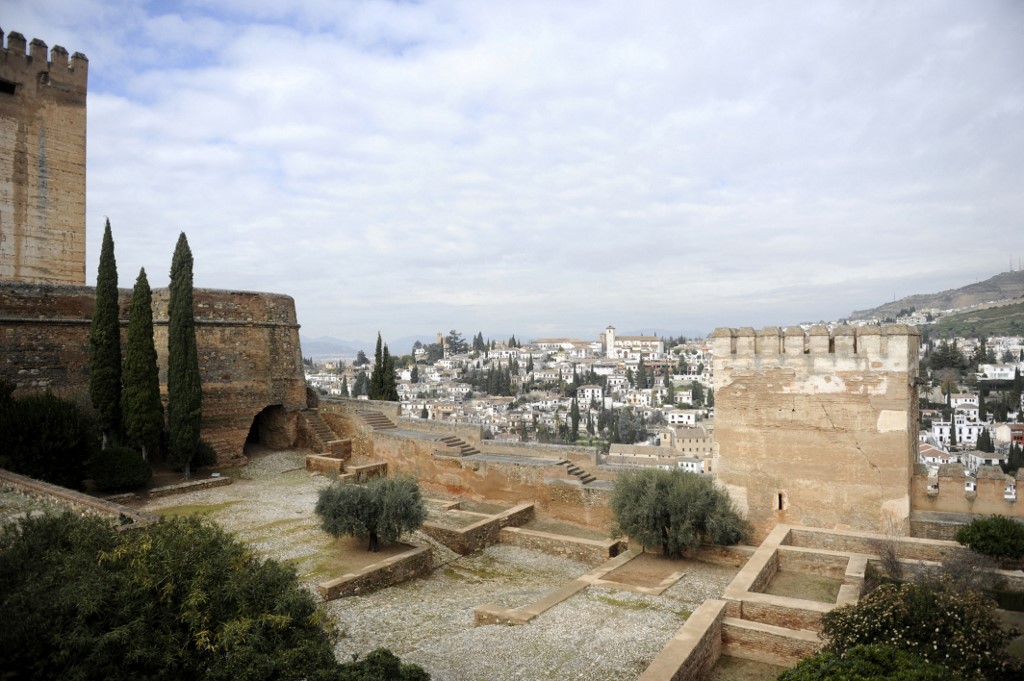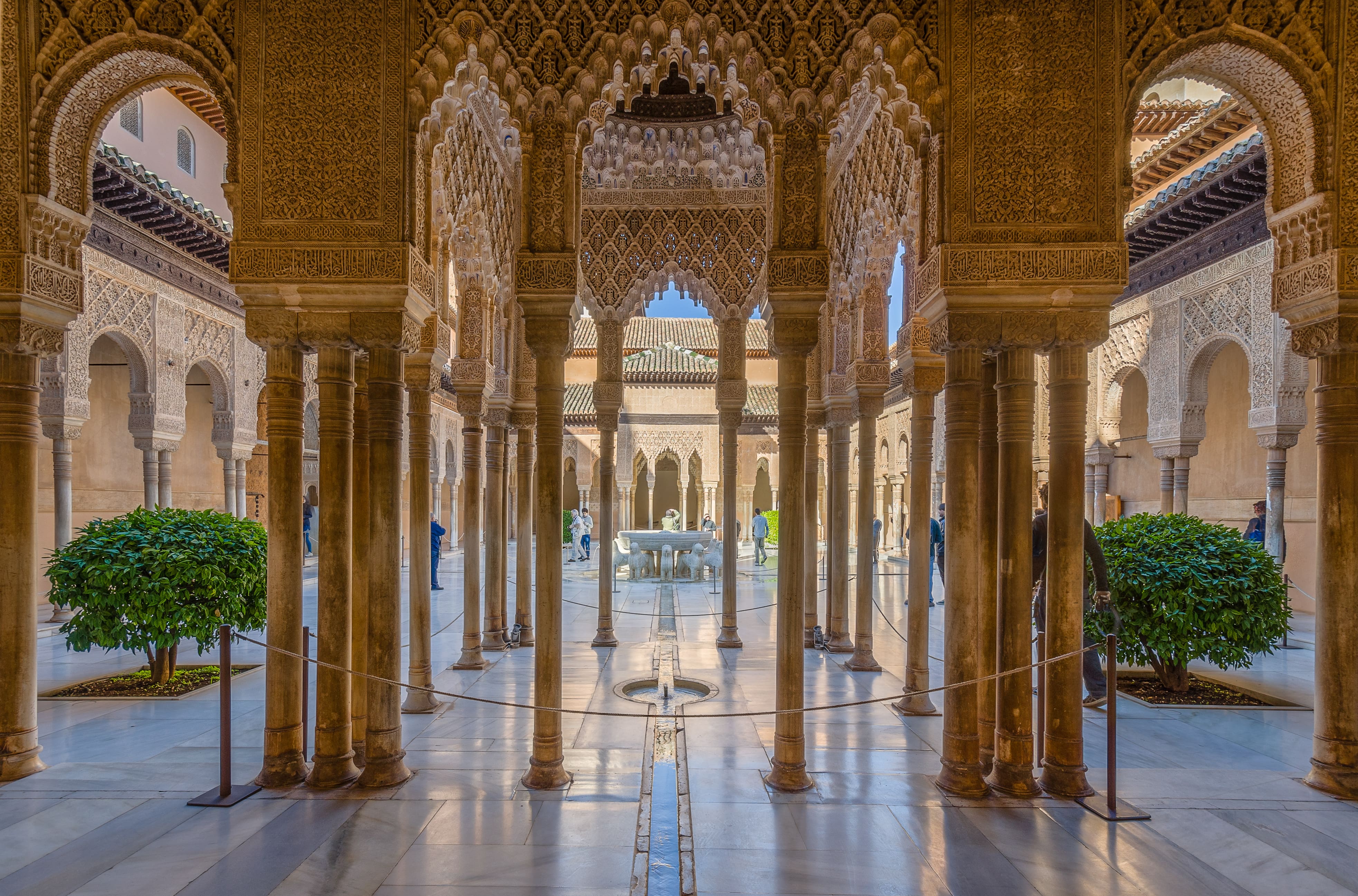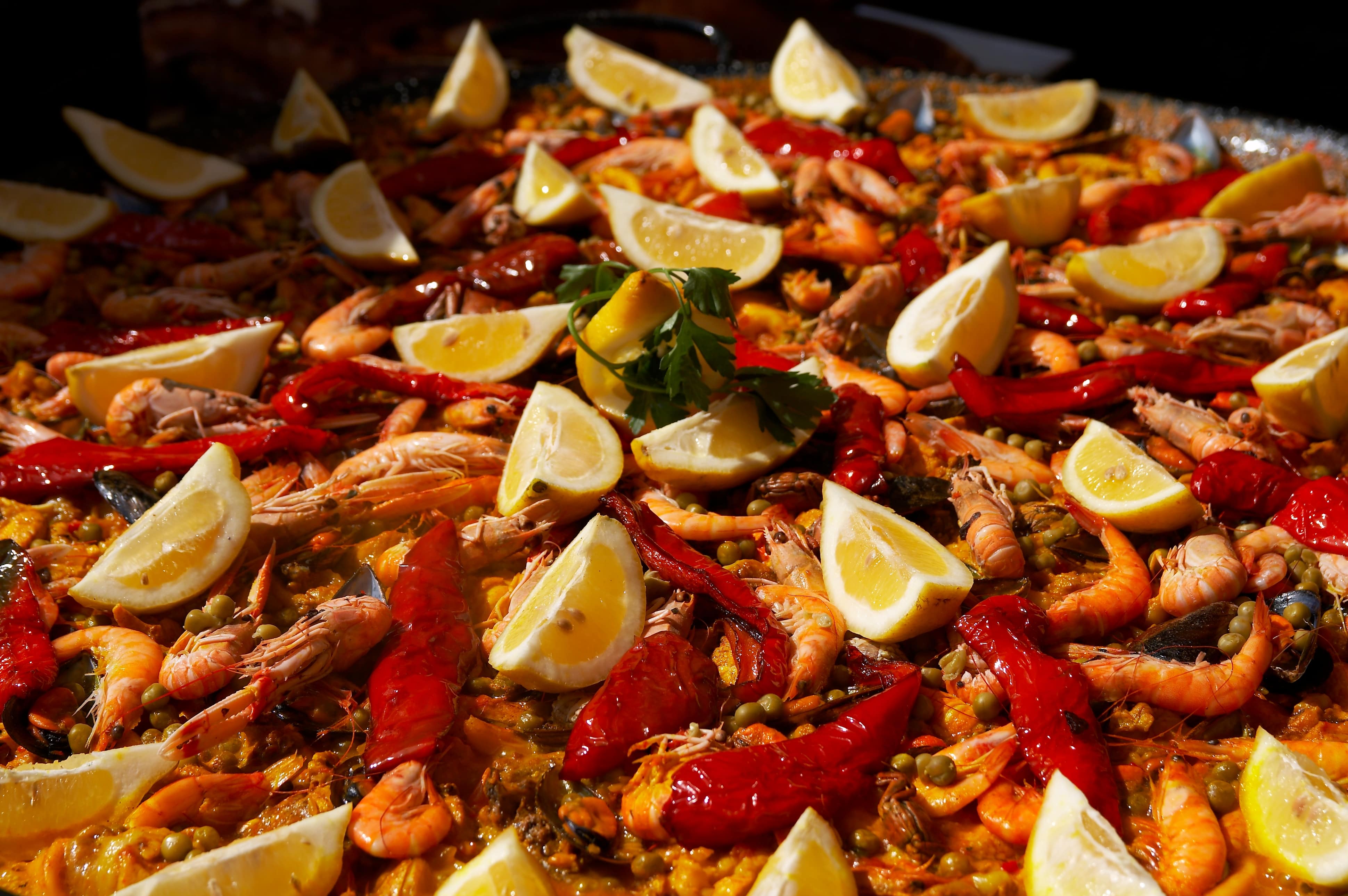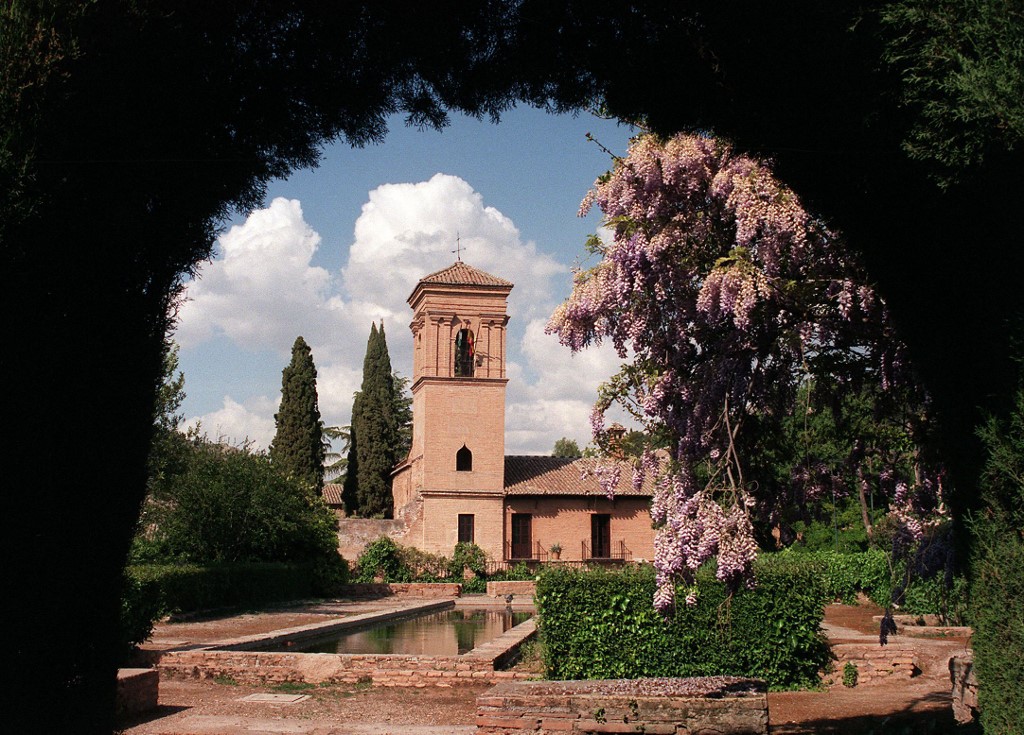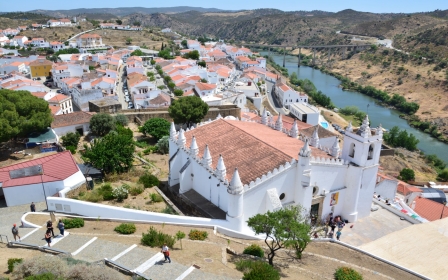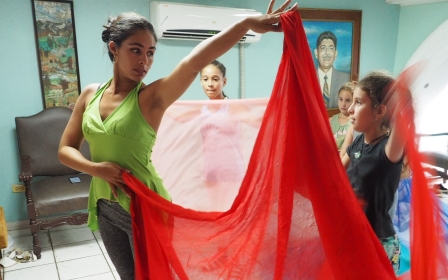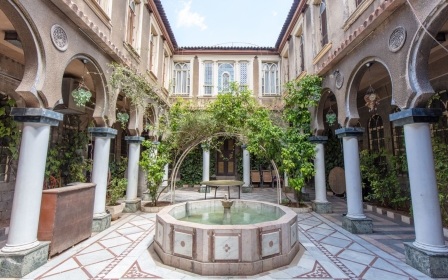Aceituna to Ojala: Seven Spanish words and phrases derived from Arabic
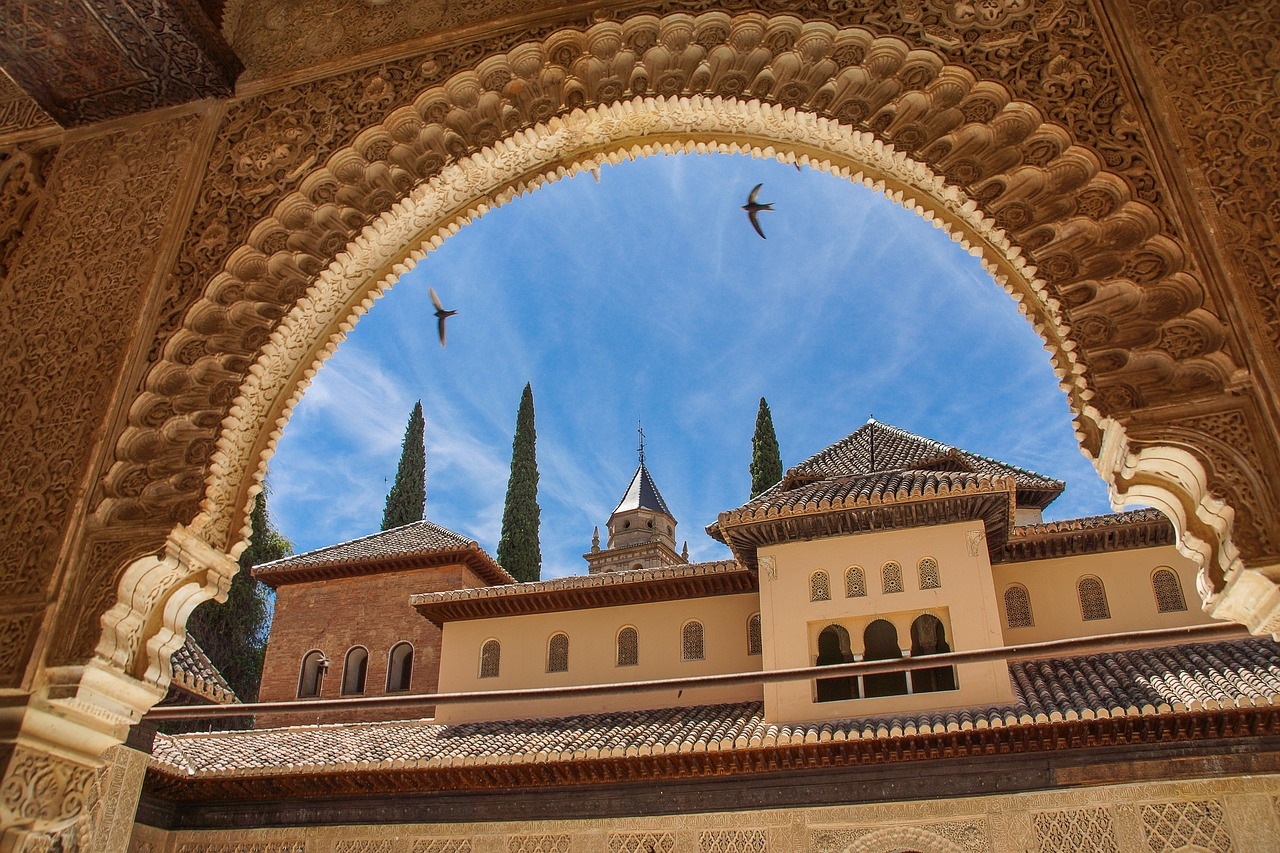
If you've ever listened to Spanish and thought some of the words resemble Arabic, it's because there's a millennium-old relationship between the two languages.
According to some historians, there are around 4,000 words in the modern Spanish language which stem from Arabic.
Between the 7th and 15th centuries, most of the Iberian peninsula, including modern-day Spain and Portugal, was under Muslim rule with Arabic spoken throughout.
The local culture, including architecture, food and heritage, was heavily influenced by Islamic culture, and Arabic would later became the official language.
New MEE newsletter: Jerusalem Dispatch
Sign up to get the latest insights and analysis on Israel-Palestine, alongside Turkey Unpacked and other MEE newsletters
The city of Madrid, founded in 865 by the Umayyad emir Mohamed I, was first known as Mayrit.
Today, around 300,000 Muslims live in Madrid, while Spain's population of Muslims has grown to around two million.
Here, we take a look at some Spanish words that are still used today, which were borrowed from the Arabic language.
Some of the words have origins in other languages, such as Persian or Sanskrit, but were brought over to Spain through the Arabic spoken by the Muslim population.
1. Ojala - from the Arabic 'Inshallah' (God willing or hopefully)
If you speak Spanish, chances are you know a lot of Arabic.
This is apparent in the saying "ojala", which originates from the Arabic word "Inshallah", meaning "If God wills" or "God willing".
Muslims use the term when making plans or talking about the future as a reminder that all plans are in God’s hands, and only happen as a result of God's will.
Today, the term is used in Spain to mean hopefully. The Arabic language started to have a stronger influence in Spain during the Christian Reconquista, when territories governed by Muslims rulers were conquered. These territories, during the 11-13th centuries, had a large number of Arabic speakers.
The south of Spain was influenced more by the Arabic language, hence why today, dialects spoken in the southern half of the country, such as castellano meridional or Southern Castilian, have more Arabisims in them.
In European history books, Muslims are commonly referred to as the Moors, which loosely translates as dark-skinned people.
Today, scholars call the many Arabized Romance dialects that were spoken in areas under Muslim rule Mozarabic.
The Spanish word "ole", still used today in Spain to express surprise or joy, is believed to originate from "wallah", which is Arabic for "by God" or "I swear by God".
2. Aceituna - from the Arabic 'zaytuna' (olive)
Arabic influence is also found in Spanish food, as well as the language. Most of the words that begin with "al" in Spanish are derived from Arabic.
Paella, which is considered by many to be Spain's national dish, contains many ingredients which were heavily used in the Middle East, such as saffron and rice.
Other ingredients such as artichoke (alcachofa in Spanish) and apricot (albaricoque in Spanish) derive from Arabic and were prevalent in many north African dishes, such as stews.
The same can be said for olive oil, which was used for remedies in the Middle East as well as for cooking and cosmetics.
When the Muslims ruled over Spain, or Al-Andalus as it was called then, they became famous for supplying olive oil to the rest of the Iberian peninsula and Rome. During this period, new varieties of olives were introduced into these areas.
The word "aceituna" comes from the Spanish word aceite, which means oil and originates from the Arabic az-zayt.
Many of the Spanish words which originate from Arabic can be helpful in shedding light on the industries, foods and trades that were common in the Middle East at the time and were brought over to Spain. This includes things such as cotton.
Some words were also influenced, more specifically, by the Moroccan dialect, mainly due to the Spanish protectorate over Spanish Morocco in the 19th and 20th centuries.
3. Algodon - from the Arabic 'al qutn' (cotton)
The Muslims were the first people to introduce cotton to the Iberian peninsula, so it comes as no surprise that the Spanish word for cotton comes from the Arabic "al Qutn".
They brought with them significant advancements, as a result the city of Cordoba had over 900 public baths and paved roads with street lamps - hundreds of years before the rest of Europe.
Along with these advancements also came a number of trades and resources, including dates, oranges, lemons, silk and cotton. Today many of these items remain some of the key trades in Spain.
4. Almohada - from the Arabic 'mikhada' (pillow)
This word comes from the Arabic al-mikhada, which means pillow or cushion.
It is believed to originate from the classical Arabic word "khadd" which means cheek. The word was used for cushions or pillows because it's where you rest your cheek.
The influence of Arabic words can also still be witnessed in clothing items as well as home items such as pillows. Alfombra, which means carpet also comes from Arabic and is easily identifiable because it begins with "Al" which means the in Arabic.
5. Azucar - from the Arabic 'as sukar' (sugar)
Originating from the Arabic word "as-sukar", which means sugar, this is only one of the many examples, particularly of food items that were brought over by the Moors.
With time, Spanish speakers would alter the Arabic words to fuse them with Spanish. An example of this is replacing the "al" article at the beginning of words with an "a".
Today, many sugar plantations which were introduced by the Moors can still be seen in southern Spain. At the time when the Moors ruled, sugar was a key industry and was an immensely valuable part of the local economy.
Sugar was so important and lucrative that a sugar tax was eventually imposed, and for centuries this would provide vital revenue for Granada.
The Mediterranean climate allowed for a number of crops to be grown in abundance, and many of these crops were already being grown across north Africa.
The sugar mills across Spain were also eventually used to make honey and food products that contained sugar cane.
6. Ajedrez - from the Arabic for ash-shataranj (chess)
Brought over by the Muslims as a form of entertainment in the year 711, chess became hugely popular around Spain.
In Spanish the "J" sound was originally pronounced as "sh" or "ch", making the word closer to the Arabic than what appears.
Chess originally came from India in the sixth century, but after being adopted by the Moors and Berbers, was later changed to take on more Christian-looking motifs, in an effort to honour Queen Isabella of Spain.
In India the game was called chaturanga, a Sanskrit word that meant four divisions of the army, including elephants, charioteers, cavalry and infantry. The game had no queen, however the game went on to reflect the countries and beliefs in the locations it was played.
A prime example of this is many historians believing that Queen Isabella of Spain influenced the introduction of the queen into chess, after a coronation process meant that she and Ferdinand II of Aragon would rule jointly and have equal powers.
Isabella would later help organise the strategy behind the war against Portugal and a way to conquer Granada, which at the time was the only remaining part of Spain ruled by Muslims.
Along with chess, the Moors also introduced the philosophy of Aristotle, spices and musical instruments to Spain.
7. Alcancia - from the Arabic for 'kanz' (treasure or piggy bank)
Alcancia is Spanish for piggybank, or a pot that someone uses to store loose change or money. However, the word comes from the classical Arabic word "kanz" which means treasure.
The word originally comes from Persian but was adopted in the Arabic language.
During the period when the Muslims ruled, often a money box would be kept in an alacena, a cupboard, a word which also stems from the Arabic for al-khazana.
In Spain, the term was used for cashboxes or collections at churches.
The Arabic influence could be seen in more than just the language. In the year 716, al-Andalus, which was the name given to the community which Muslims ruled, was carved into the coins at the time in both Arabic and Latin.
Middle East Eye delivers independent and unrivalled coverage and analysis of the Middle East, North Africa and beyond. To learn more about republishing this content and the associated fees, please fill out this form. More about MEE can be found here.


